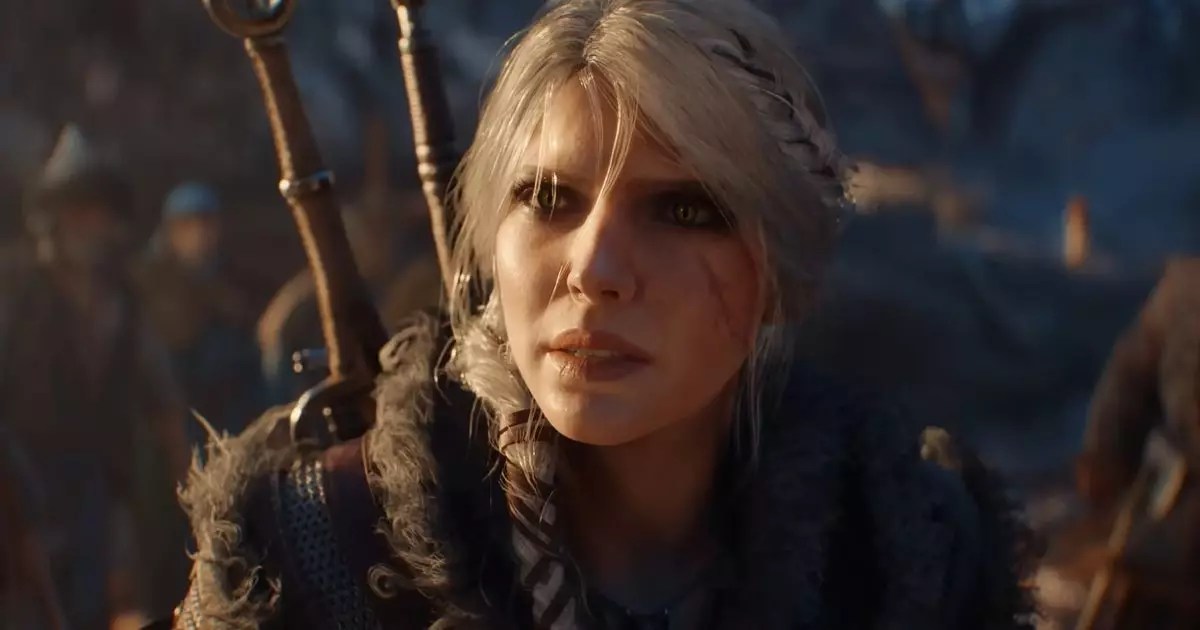The anticipation around *The Witcher 4* has reached fever pitch among fans eager for a new installment in CD Projekt Red’s acclaimed series. However, recent announcements have thrown a damp cloth on expectations for a timely release. During a financial call, it became evident that the game will not see the light of day before the end of 2026, with projections possibly even extending into 2027. This revelation, while not surprising, nonetheless stirs a potent mix of frustration and excitement; fans are eager for substantial updates and instead receive the cold hard reality of development timelines and investor relations.
In an era where gaming releases often feel driven by the relentless pace of technological advancement, the commitment by CD Projekt Red to ensure quality over expediency is commendable. Yet the lengthy development cycle can lead to a sense of disconnect between the studio and its fanbase, as excitement fizzles when faced with tangible delays. For a franchise that has cultivated a rich narrative and beloved characters, waiting too long could risk losing some of that ardor among its audience.
Transparency and Strategic Planning
Interestingly, during the earnings call, CFO Piotr Nielubowicz emphasized the studio’s deliberate approach towards transparency with its stakeholders. Although numbers dominated the meeting, his words resonated with both excitement and caution: “We are not going to announce the precise launch date for the game yet,” he stated, acknowledging the vast spectrum of expectations surrounding the franchise. Such open communication is critical for maintaining investor confidence, especially in a landscape where release dates have been known to shift dramatically.
What stands out in this dialogue, however, is the overarching approach CD Projekt Red seeks to adopt. Rather than rushing a product to market, they are betting on creating a robust narrative and immersive gameplay that fans have grown to love. This strategic patience may pay dividends, particularly as gaming becomes increasingly competitive, and players look beyond mere graphics toward storytelling depth and innovative gameplay mechanics.
AI Dilemmas in Game Development
An intriguing aspect of the company’s future, as highlighted during the call, is their cautious stance on integrating generative AI into *The Witcher 4*’s development process. Concerns about intellectual property and copyright have caused hesitation in leveraging advanced technologies that could potentially enhance game design. “Gen AI… is quite tricky when it comes to legal IP ownership,” remarked joint CEO Michał Nowakowski.
In a world where AI is revolutionizing industries, from finance to healthcare, the reluctance of CD Projekt Red to incorporate it into their creative process raises questions. While the technology holds the potential for faster development and richer storytelling, the complexities of legal frameworks can stifle innovation. However, the studio has not completely closed the door on AI, hinting at future investigations into customized models, potentially allowing for a unique integration of AI while safeguarding intellectual rights.
Ciri Takes the Helm: A New Narrative Journey
As excitement simmers over the extended timeline, one thrilling element has emerged: Ciri, the fan-favorite character, will star in the upcoming adventure. The revelation was met with acclaim as she embarks on a journey that promises to explore nuanced themes, including the systemic sexism entrenched within the fantasy realm. This pivot towards a protagonist who can represent broader societal issues is not only refreshing but indicative of CD Projekt Red’s willingness to tackle complex narratives.
Notably, this narrative shift toward Ciri could help cultivate a more relatable story, enabling the exploration of deeper themes that resonate with today’s gamers. The prior installments have often dwelled on mature themes, and if executed thoughtfully, this focus on Ciri could elevate the entire game beyond mere entertainment.
Moreover, fans will be delighted to know that the beloved card game Gwent will return, further enriching the universe and providing charming distractions from the main storyline. In an age where gameplay mechanics are often recycled or left by the wayside, Gwent’s resurgence indicates that CD Projekt Red values the immersive experiences they’ve created.
Anticipation Breeds Innovation
While the prolonged production timeline for *The Witcher 4* might be disheartening for some, it also cultivates robust anticipation and sets the stage for substantial creativity. As we await the arrival of this sequel, the studio’s commitment to quality storytelling, thoughtful inclusivity, and the potential for innovative integration of technology provides a hopeful glimpse into what can only be described as an exciting future for one of gaming’s most cherished franchises.


Leave a Reply